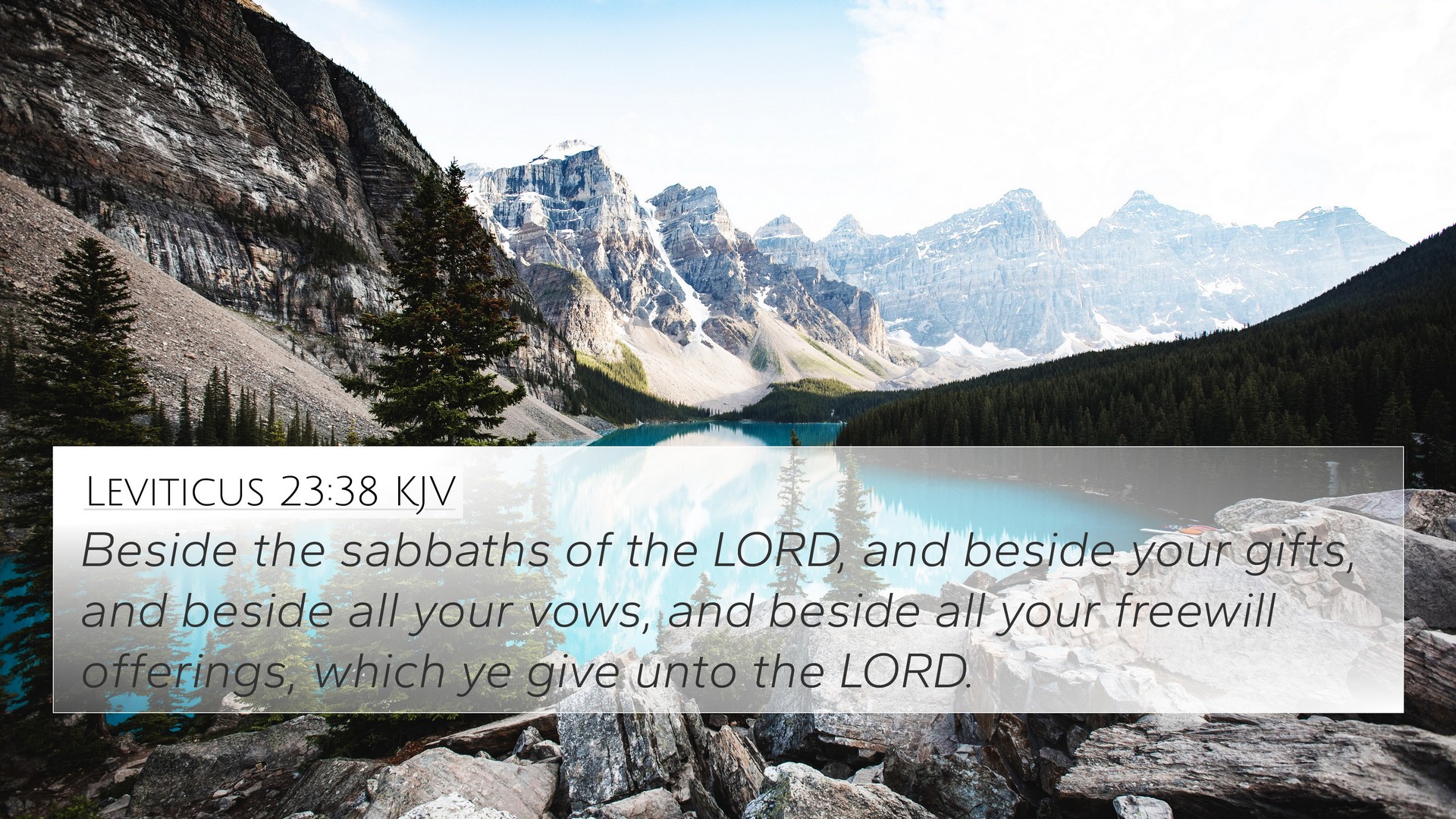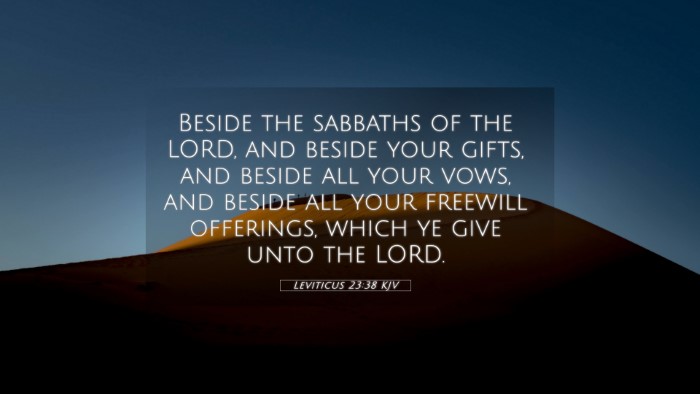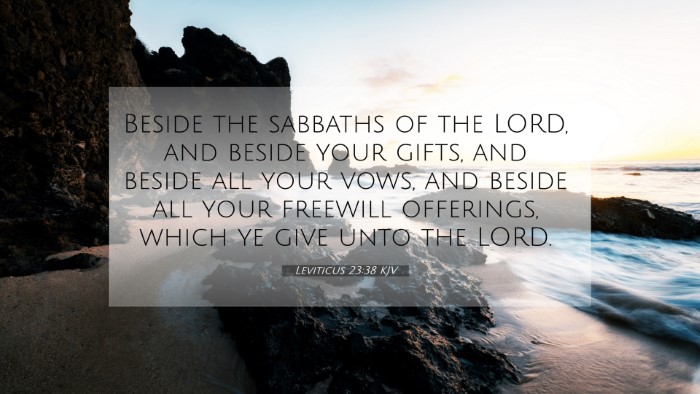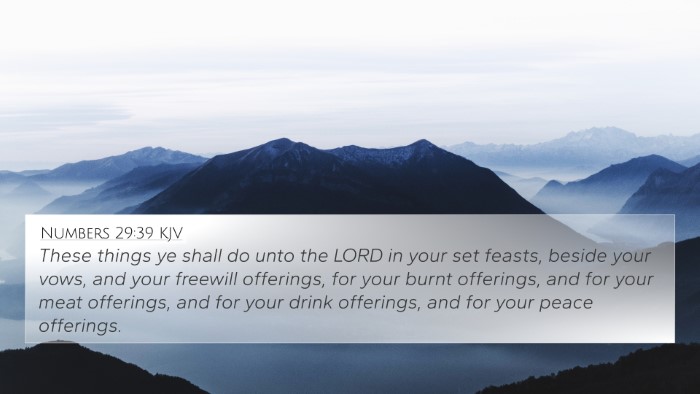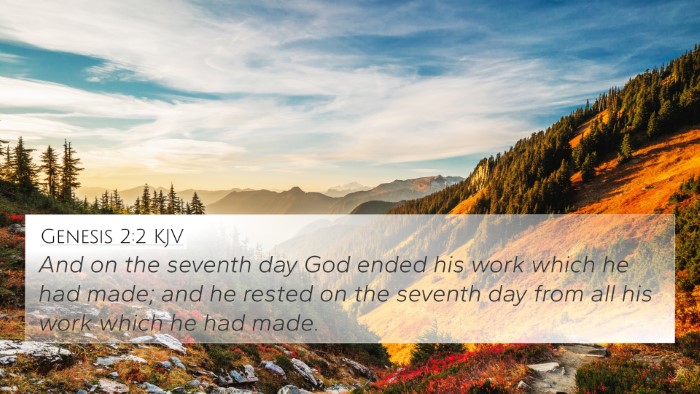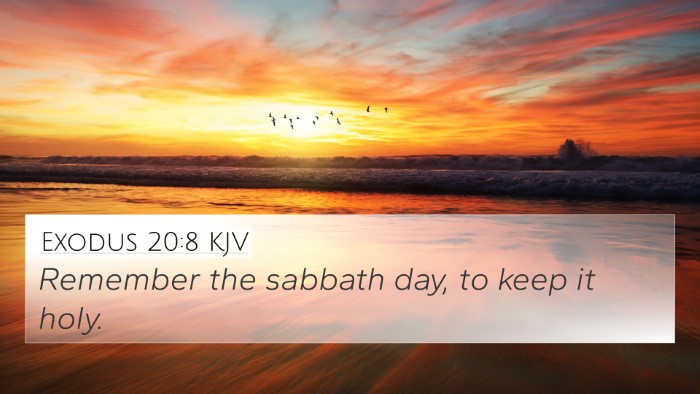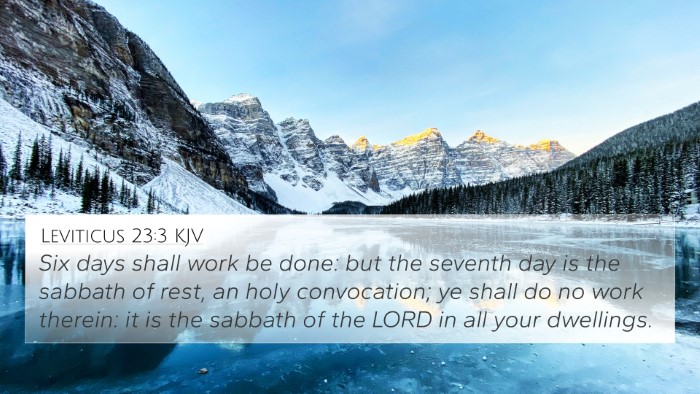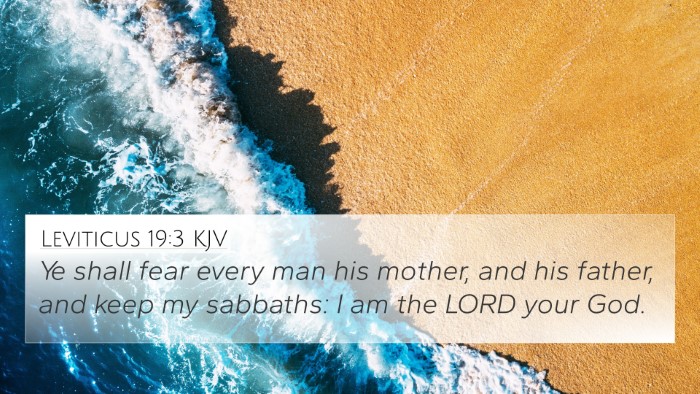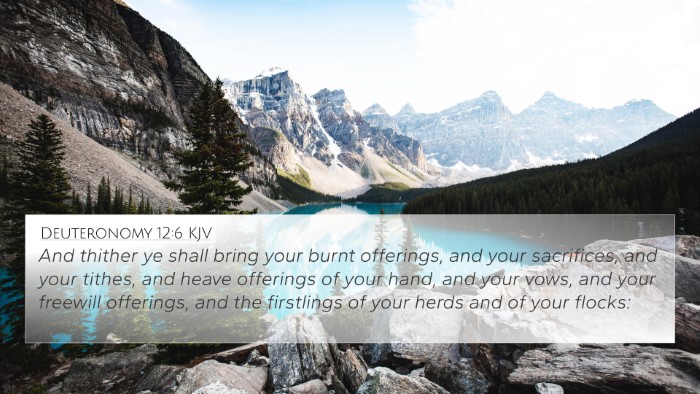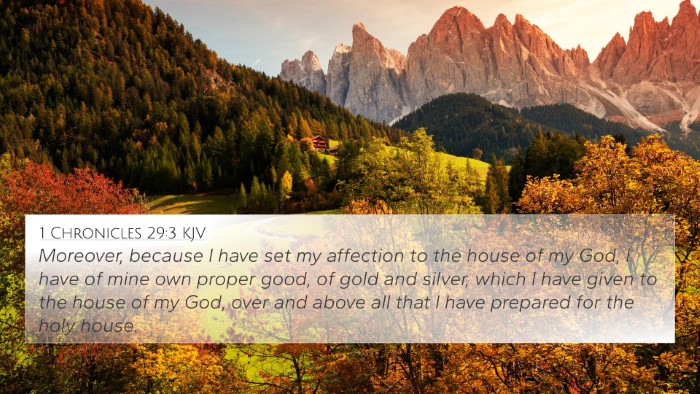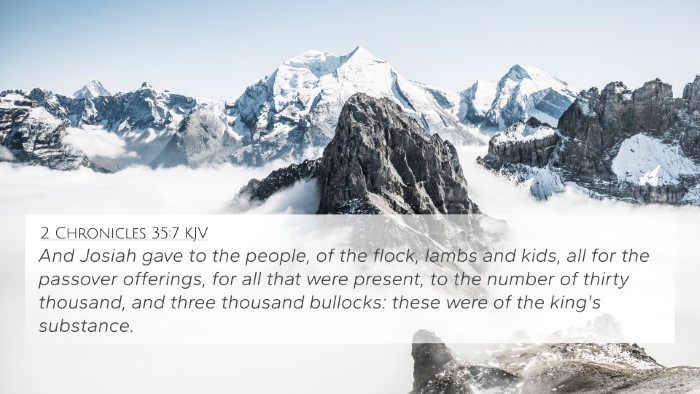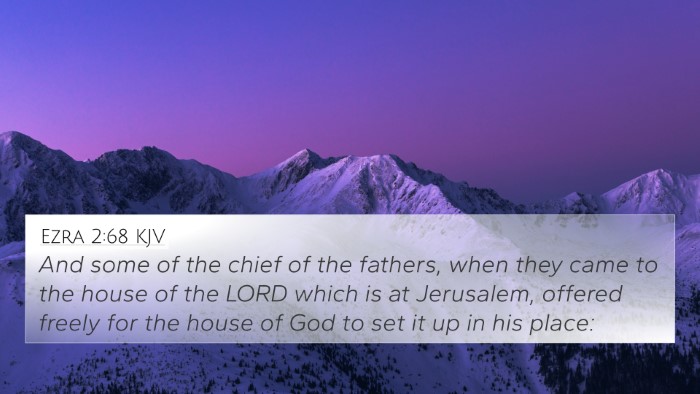Understanding Leviticus 23:38
This verse falls within a broader context of the annual feasts and celebratory practices outlined in the Old Testament, specifically within the Book of Leviticus. Leviticus 23:38 emphasizes the importance of offerings made to the Lord beyond the established festivals. Below is a summarized interpretation using insights from prominent public domain commentaries such as those by Matthew Henry, Albert Barnes, and Adam Clarke.
Verse and Context
Leviticus 23:38 (KJV) states:
“Beside the sabbaths of the Lord, and beside your gifts, and beside all your vows, and beside all your freewill offerings, which ye give unto the Lord.”
This verse is situated in a passage detailing the feasts that the Israelites were commanded to celebrate, with a focus on their devotion, worship, and community remembrance of God's providence.
Summary of Commentary Insights
- Matthew Henry: Henry emphasizes that this verse serves to highlight the various forms of offerings that the Israelites were expected to present to God. It demonstrates that worship is not limited to specific feasts but includes ongoing acts of service and gratitude. The mention of "sabbaths" and "gifts" underlines the comprehensive nature of their covenant relationship with God, indicating that worship should be a continuous endeavor.
- Albert Barnes: Barnes notes that the offerings made by the people express their acknowledgment of God's sovereignty and their dependence on Him. He points out the distinction between obligatory offerings and voluntary ones, suggesting that while some sacrifices are mandated, others reflect a personal and heartfelt devotion. This insight encourages believers to reflect on their own giving and commitment to serving God beyond mere obligations.
- Adam Clarke: Clarke interprets this verse as an encouragement for believers to continually offer their lives as living sacrifices. He correlates this to New Testament teachings, illustrating a continuity of worship practices. He notes that while specific feasts were significant, the essence of worship lies in the heart attitude and the daily acts of righteousness that believers perform as a response to God's grace.
Bible Verse Cross-References
Leviticus 23:38 relates to several other scriptures that offer deeper insight into the themes of worship, sacrifices, and God's promises:
- Exodus 23:14-17: Outlines the three annual feasts and emphasizes the importance of appearing before the Lord with offerings.
- Deuteronomy 16:16-17: Further explains the requirement of the Israelite males to bring offerings during the festivals.
- Psalm 50:14-15: Encourages the offering of thanksgivings to God as an act of worship and redemption.
- Romans 12:1: Connects Old Testament sacrificial practices to the New Testament call for believers to present themselves as living sacrifices, holy and pleasing to God.
- Hebrews 13:15: Suggests that our worship continues through the offering of praise as well as tangible gifts.
- Philippians 4:18: Paul describes the support he received from the church as a sacrificial offering, well-pleasing to God.
- 1 Peter 2:5: Refers to believers as living stones being built into a spiritual house, where their sacrifices are acceptable to God through Jesus Christ.
Thematic Connections and Analysis
The exploration of Leviticus 23:38 alongside these connected verses unveils a rich theological dialogue regarding the nature of worship:
- Continuous Worship: The idea that worship extends beyond set times reinforces the necessity of a heart committed to serving God in all areas of life.
- Offerings and Sacrifices: The distinction between mandatory and voluntary offerings encourages believers to assess their motives in giving—highlighting cheerful giving as opposed to obligatory sacrifice.
- Communal and Personal Worship: The balance between corporate worship during festivals and individual acts of devotion illustrates the multifaceted nature of worship in the believer's life.
Conclusion
Leviticus 23:38 invites believers to engage in worship that transcends specific occasions, urging a lifestyle of continual gratitude and dedication to God. The cross-references and thematic connections reinforce the notion that true worship involves both community and personal sacrifice. It challenges the faithful to cultivate a spirit of generosity and commitment in all aspects of life, echoing the timeless principle of honoring God with the best of what we have.
Further Studies: Tools for Bible Cross-Referencing
For those interested in deeper studies, utilizing a Bible concordance or a Bible cross-reference guide can enhance understanding:
- How to find cross-references in the Bible: Many Bibles provide cross-references in the margins or footnotes to facilitate a thematic study.
- Cross-reference Bible study: A method to interpret themes through links between verses and chapters.
- Bible reference resources: Utilizing comprehensive Bible cross-reference materials can uncover deeper scholarly insights.
Continuing to explore the connections between Bible verses leads to richer understandings of the scriptures, helping believers to grasp the depth and breadth of God’s Word.
